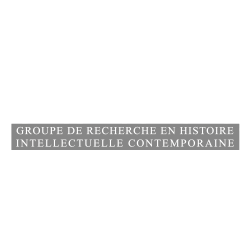Cultural relations and the National Commission for UNESCO
By joining UNESCO in 1949, Switzerland not only became part of one of the agencies of the UN, but also of a network of international relations. Like any member country, the Confederation was invited to form a National Commission to liaise between the institution, situated in Paris, the Federal Council and the national circles active in the fields of education, science and culture.
It took several months to establish the National Commission for UNESCO, during which its composition was heavily contested. Should it mainly consist of representatives of the Federal administration, of cultural associations or of politicians?
In an attempt to please everybody, the commission, nominated in May 1949, was composed of 64 people, elected for a first term of four years. Only three of them were representatives of the Federal Council, eight were members of Pro Helvetia. By 2013 the commission was reduced to 20 members, nominated by the Federal Council. The Commission is in charge of promoting UNESCO values in Switzerland and seeing to the implementation of its programmes. Sometimes it was risky work. How was a country, which did not respect fundamental principles, championed by UNESCO, to be presented at its best? In Switzerland, women were disenfranchised and thus excluded from the ranks of active democracy until 1971. The members of the National Commission, good third women, were well aware of their twofold mission. They had to promote Switzerland at UNESCO while at the same time spreading the idea of equality, the right to education for everyone, and cultural tolerance in their own country.
The commission organised seminars for pedagogues and professionals in Switzerland. In 1960 e.g. it initiated a training course for teachers on the topic of “Asia Today”. 1950, the director of the UNESCO, Jaime Torres Bodet, was invited to Switzerland. The Commission also produced many publications to popularise the work of the UN organisation as well as a great amount of reports covering a wide range of topics, such as the Swiss education system, the maintenance of museums, or even Swiss cinema and the youth.
But far from only being a “factory of reports”, the commission is an impressive tool for international relations. Every year since 1949, the members of the commission have been afforded the opportunity to meet their foreign counterparts at seminars or scientific conferences. One of their traditional tasks remains to provide experts to other countries for technical aid missions lasting several days or even months. In 1968 e.g. 48 people volunteered for a UNESCO mission. Cooperation also manifests itself in donations of books, brochures or even in hard currency, paid out for projects concerning education or the protection of cultural heritage.
Although Switzerland itself did not sign any cultural agreements, the National Commission was able to do so with their counterparts. In February 1972, a memorandum of understanding was signed with Cameroon, and in the following year two Swiss librarians went to Cameroon to teach a course in organisation and management of school libraries. The secretary of the Swiss commission, Jacques Rial, published a minor work on “La littérature camerounaise de langue française “. In July 1973, it was his Cameroonian counterpart Charles Bebbé’s turn to visit the Swiss institutions.
Thus, the National Commission for UNESCO works well as a true instrument for the development of international cultural exchange.
Archives :
BAR, Bestand der Schweizerischen UNESCO-Kommission, E9510.0










